
Life Skills for Fanboys: How to Fix Comics? Stop Reading Them
written by Tony DiGerolamo, Copyright 2014
To further my goal of helping fellow fanboys, I have included an index of links of previous columns with their topics. Don’t take it personal, I’m just trying to help. Previous columns are indexed at the end.
What’s Wrong With Comic Books?
In a nutshell (and we’re really talking American comic books), most are poorly drawn and horribly written. I say most, not all. More probably have good art than story. They’re expensive, hard to obtain and when they do achieve a level of solid creative work, it eventually goes away. I mean, there’s lots of stuff wrong with the comics industry, but these are just a few of the highlights. The biggest problem, however is—
You’re assuming I’m only talking about the big two publishers.
Fanboy Assumptions
Most fanboys (and those outside the comics community) assume when you start talking about comics, you’re talking about superhero comics from the big two publishers. People have a long litany of complaints about them (at least in the world of comic book shops and comic cons that I travel). Changes in artwork, story, price, consistency— It goes on and on.
But the hardcore fanboys continue to buy.
Back in the day, I used to manage a comic book store. I had an old time fanboy in the shop who had bought all of the Avengers. ALL of them. He had everything since issue one, but each week (this is the mid 90’s) he came into the store and complained how horrible the current storyline was. He wasn’t totally opposed to reading other comics or indy comics, but he kept pouring his money into the Marvel pot.
I told him my solution. Stop buying the Avengers.
He couldn’t wrap his brain around it. Now, I understood he had a very complete run of the Avengers. Probably the most complete of anyone that I knew, but if he really loved the story, he needed to vote with his dollar to get it back on track.
The Comic Book Publishing Business
Comic book publishers run a business and it’s there to make money. There’s nothing wrong with that. But understand, getting angry that the big two publishers don’t publish more girl comics or comics by African Americans or comics about this group or that— You’re think you’re helping, but you’re not.
Businesses are about money. Yes, you can complain to the big two about whatever topic they’re not covering or whatever character you’d like to see return, but you’re not living in a “Comic Book Democracy”. The big two are not a country in which comic book fans are citizens. You’re just customers. It’s like going to a fast food restaurant and complaining that the food isn’t healthy enough. If you’re on a diet and trying to get healthy by eating Mickey Dee’s, you’ve already missed the point.
Comic books in America have been mostly about superheroes and most of them appeal to guys. Sorry. Facts are facts. Female fans tend to like Manga. So what? Should we start a drive demanding that Manga publishers devote more of their time attracting a male demo?
And when you complain to companies or give them bad PR, you can change them. But understand, they’re only changing because of the MONEY, not because they care one way or another. That’s not what a company is. It’s not built to care about people. It’s built to pay people money. Asking a company to care is like demanding that the robots in a factory assembly line care about your feelings. You’re barking up the wrong tree.
Company Solutions
I’ve worked in publishing companies and the discussions are not about “How can we improve the image of women in comics?” or “How can we make our superheroes more PC?” The discussions are about addressing customer complaints in the shortest, most economic way. In other words, “What’s the cheapest thing we can do so this won’t cost us more money?” And when they ask, “How can we get women to read?” They really are saying, “How can we get female CUSTOMERS so they buy our product?”
The results are often exactly what the fans who complain, DON’T want. I.E. comics that end up pandering to a particular group, just so the company can point to those comics and say, “See? See we addressed your concerns. See how much we care about women and minorities and gay people?” The end result is often forced, creatively. Therefore, the sales are weak and when the sales are weak, comics get canceled and you’re back to where you started. Except now the company can hide behind its PR for a few years. “Oh, remember when we did that line of transgendered superheroes four years ago? See? We’re cool!”
But wait, it gets worse. Businesses, especially in publishing, have a high turnover rate. So when the next group of people that run the business take their seats and are in charge, they will look back on previous sales appealing to those specialized crowd, see how bad the sales were and say, “Oh, no. Let’s stay away from that. That’s not good business.” Congrats, you’ve achieved the exact opposite. You’ve now made it HARDER for women, gays, minorities, etc to get into comics. You’ve relegated it all to a niche market the company will address the next time the fans complain, IF they complain hard enough.
Money, Fanboys, Money
It’s about money. You know, but you don’t know. If want to stop one of the big publishers in their tracks, stop buying their product. If enough people stop buying, management will go absolutely bananas in trying to figure out why. “What the HELL? Why are the numbers on Awesomeman so low? Get someone from the distributor on the phone, RIGHT NOW.” People’s jobs are on the line and when that happens, stuff gets done. Things get found out. I guarantee that if fans boycotted the new Teen Titans and left all the issues on the stands, it would be canceled, revamped and probably return in a less boobtastic form (assuming management tied the recent bad PR to the problem).
Where to Put Your Money
This may come as a shock to you, fanboy, but there are literally hundreds of female, African American, gay, transgender and other kinds of creators all over the country and all over the world. They have their own comic books (and webcomics), often eeking them out a little at a time. Many of them are superhero, many of them are not. But where are all these complaining fans when these people come into a comic book convention in Artists’ Alley?
They are standing in line for the big two for the latest collectible. They are seeing the latest superhero movie and then going online to complain about it.
Look, I have nothing against Marvel and DC, this isn’t about that. I just understand what they are. They’re big companies that do big business. They don’t exist to serve my narrow, personal needs. How can they? They have millions of fans.
But as a fan, I grew out of their material a long time ago. Not because I’m some “anti-corporate” guy, but because I outgrew superheroes. I moved on to more challenging fair in the world of indie comics and webcomics. That’s where the truly creative stuff is happening. That’s where characters can really die and not come back, where superheroes can curse, where there are no superheroes at all— Imagination is limitless there. Women characters, African American characters, gay characters— You name it, they’re all there and they tend to get treated much better because the creators live in those worlds. They’re not trying to prove something because they got embarrassed by a recent news story and the boss said do something, they’re just doing what they like to do.
And let’s be honest, the aging characters of the big two no longer have the creators behind them. Most are dead or long gone. It’s just constant reimagining by someone punching a clock. It doesn’t mean the work is bad or the comic isn’t good, but it’s different. A creator still working on his creation is often responsive and emotionally invested in his work, moreso than a hired hand. Who cleans your place better? You or someone you hired to clean it? Who makes a better sandwich for you? You or the guy at Subway?
So, support your indie creator. That’s the way to save comics. Now, that doesn’t mean there isn’t crap in indie comics (and boy there’s a lot), so you still have to pick and choose. But with the thousands of webcomics and hundreds of indie comics, there has to be SOMETHING close to what you like to read. IF you make the effort, fanboy. Voting with your dollar will cause the big publishers to take notice and kick up their game. They’ll hire indie guys to pick up their comics when they see their sales start to fade. That will make the comics industry better and stronger.
Or, you can continue whining on the message boards or whatever. For what good that’ll do.
Anyhow, just my thoughts. Indie forever, fanboys.
Previous Columns
Obesity at Cons
The Art of Conversation
Grooming
The Line Between Fans and Pros
Geek Elitism
Convention Panels
Convention Volunteers
Food Gifts
Women and Cons
Get Your Room Party Together
Stop Bringing Your Kids to Cons
The Face of Geek Needs Work
Fixing the Face of Geek
Franchise Worship
Presenting Your Project
The New Image?
Stop Trying to Make Geek Cool
Rethinking the Comic Book Con
Zombie Stories Should Still Be About People
Geek Stereotypes and the Big Bang Theory
Con Locations
Traveling to Cons on the Cheap
Con Economics
Comics, Sexism and Trolling
Searching for the Words




![]()


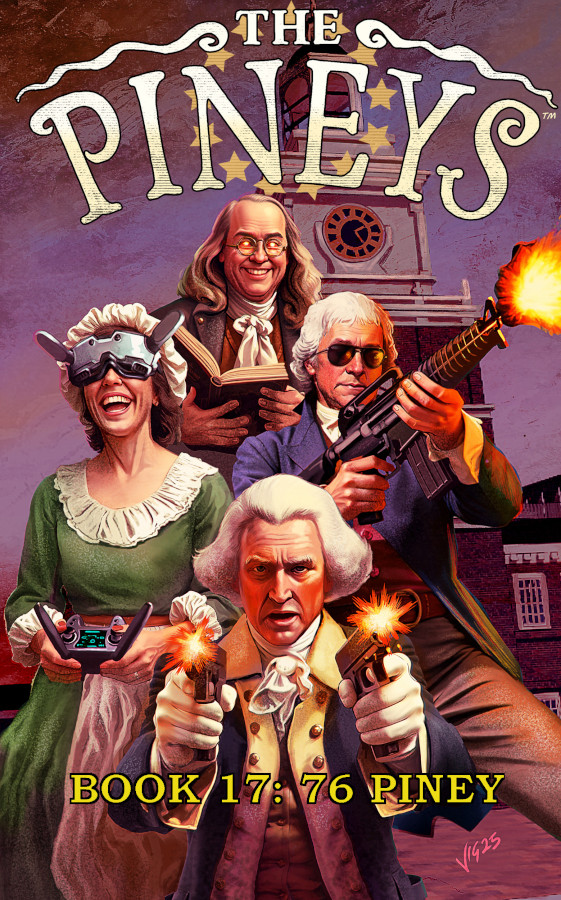




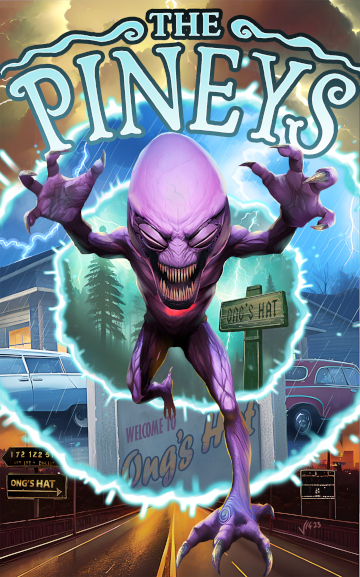

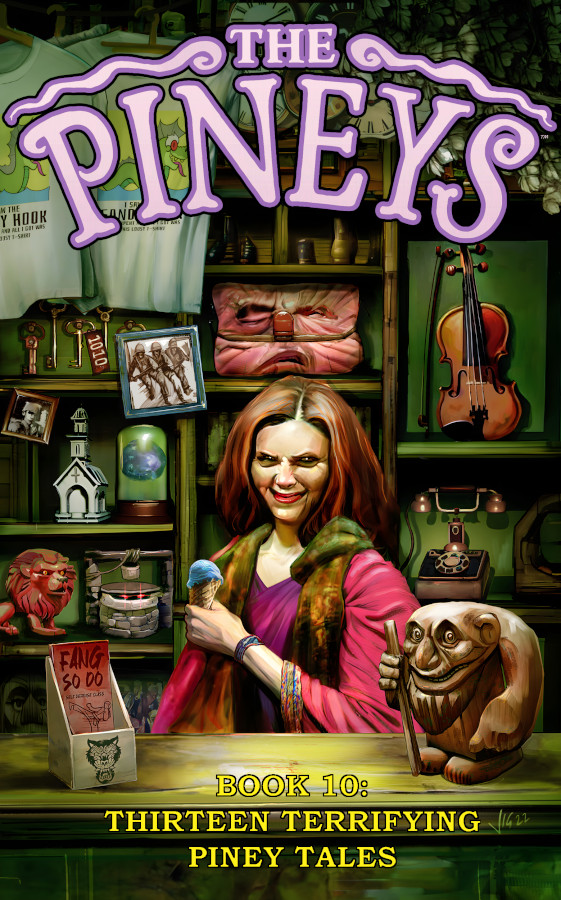

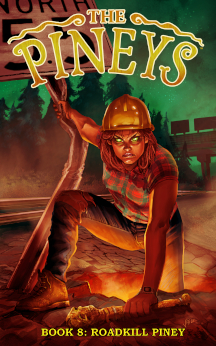
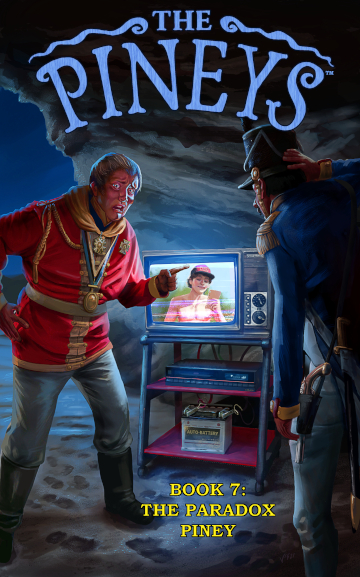

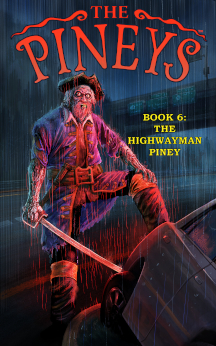
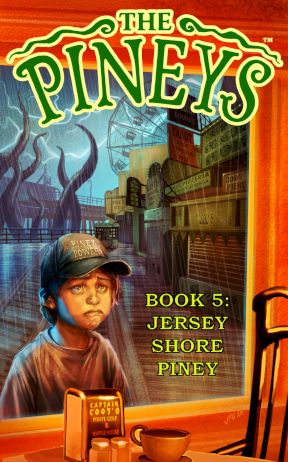


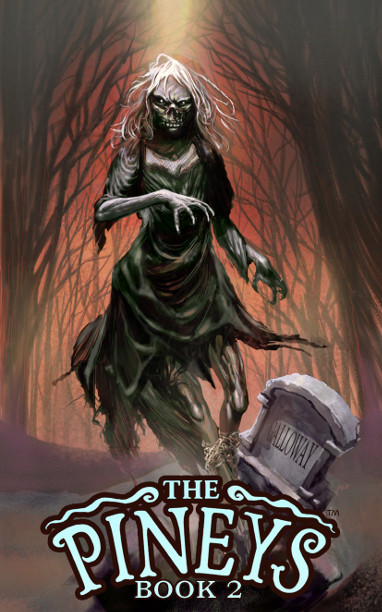
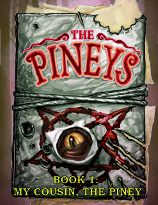


Life Skills for Fanboys: How to Fix Comics? Stop Reading Them
by tonyd on May 12, 2014 at 12:01 amLife Skills for Fanboys: How to Fix Comics? Stop Reading Them
written by Tony DiGerolamo, Copyright 2014
To further my goal of helping fellow fanboys, I have included an index of links of previous columns with their topics. Don’t take it personal, I’m just trying to help. Previous columns are indexed at the end.
What’s Wrong With Comic Books?
In a nutshell (and we’re really talking American comic books), most are poorly drawn and horribly written. I say most, not all. More probably have good art than story. They’re expensive, hard to obtain and when they do achieve a level of solid creative work, it eventually goes away. I mean, there’s lots of stuff wrong with the comics industry, but these are just a few of the highlights. The biggest problem, however is—
You’re assuming I’m only talking about the big two publishers.
Fanboy Assumptions
Most fanboys (and those outside the comics community) assume when you start talking about comics, you’re talking about superhero comics from the big two publishers. People have a long litany of complaints about them (at least in the world of comic book shops and comic cons that I travel). Changes in artwork, story, price, consistency— It goes on and on.
But the hardcore fanboys continue to buy.
Back in the day, I used to manage a comic book store. I had an old time fanboy in the shop who had bought all of the Avengers. ALL of them. He had everything since issue one, but each week (this is the mid 90’s) he came into the store and complained how horrible the current storyline was. He wasn’t totally opposed to reading other comics or indy comics, but he kept pouring his money into the Marvel pot.
I told him my solution. Stop buying the Avengers.
He couldn’t wrap his brain around it. Now, I understood he had a very complete run of the Avengers. Probably the most complete of anyone that I knew, but if he really loved the story, he needed to vote with his dollar to get it back on track.
The Comic Book Publishing Business
Comic book publishers run a business and it’s there to make money. There’s nothing wrong with that. But understand, getting angry that the big two publishers don’t publish more girl comics or comics by African Americans or comics about this group or that— You’re think you’re helping, but you’re not.
Businesses are about money. Yes, you can complain to the big two about whatever topic they’re not covering or whatever character you’d like to see return, but you’re not living in a “Comic Book Democracy”. The big two are not a country in which comic book fans are citizens. You’re just customers. It’s like going to a fast food restaurant and complaining that the food isn’t healthy enough. If you’re on a diet and trying to get healthy by eating Mickey Dee’s, you’ve already missed the point.
Comic books in America have been mostly about superheroes and most of them appeal to guys. Sorry. Facts are facts. Female fans tend to like Manga. So what? Should we start a drive demanding that Manga publishers devote more of their time attracting a male demo?
And when you complain to companies or give them bad PR, you can change them. But understand, they’re only changing because of the MONEY, not because they care one way or another. That’s not what a company is. It’s not built to care about people. It’s built to pay people money. Asking a company to care is like demanding that the robots in a factory assembly line care about your feelings. You’re barking up the wrong tree.
Company Solutions
I’ve worked in publishing companies and the discussions are not about “How can we improve the image of women in comics?” or “How can we make our superheroes more PC?” The discussions are about addressing customer complaints in the shortest, most economic way. In other words, “What’s the cheapest thing we can do so this won’t cost us more money?” And when they ask, “How can we get women to read?” They really are saying, “How can we get female CUSTOMERS so they buy our product?”
The results are often exactly what the fans who complain, DON’T want. I.E. comics that end up pandering to a particular group, just so the company can point to those comics and say, “See? See we addressed your concerns. See how much we care about women and minorities and gay people?” The end result is often forced, creatively. Therefore, the sales are weak and when the sales are weak, comics get canceled and you’re back to where you started. Except now the company can hide behind its PR for a few years. “Oh, remember when we did that line of transgendered superheroes four years ago? See? We’re cool!”
But wait, it gets worse. Businesses, especially in publishing, have a high turnover rate. So when the next group of people that run the business take their seats and are in charge, they will look back on previous sales appealing to those specialized crowd, see how bad the sales were and say, “Oh, no. Let’s stay away from that. That’s not good business.” Congrats, you’ve achieved the exact opposite. You’ve now made it HARDER for women, gays, minorities, etc to get into comics. You’ve relegated it all to a niche market the company will address the next time the fans complain, IF they complain hard enough.
Money, Fanboys, Money
It’s about money. You know, but you don’t know. If want to stop one of the big publishers in their tracks, stop buying their product. If enough people stop buying, management will go absolutely bananas in trying to figure out why. “What the HELL? Why are the numbers on Awesomeman so low? Get someone from the distributor on the phone, RIGHT NOW.” People’s jobs are on the line and when that happens, stuff gets done. Things get found out. I guarantee that if fans boycotted the new Teen Titans and left all the issues on the stands, it would be canceled, revamped and probably return in a less boobtastic form (assuming management tied the recent bad PR to the problem).
Where to Put Your Money
This may come as a shock to you, fanboy, but there are literally hundreds of female, African American, gay, transgender and other kinds of creators all over the country and all over the world. They have their own comic books (and webcomics), often eeking them out a little at a time. Many of them are superhero, many of them are not. But where are all these complaining fans when these people come into a comic book convention in Artists’ Alley?
They are standing in line for the big two for the latest collectible. They are seeing the latest superhero movie and then going online to complain about it.
Look, I have nothing against Marvel and DC, this isn’t about that. I just understand what they are. They’re big companies that do big business. They don’t exist to serve my narrow, personal needs. How can they? They have millions of fans.
But as a fan, I grew out of their material a long time ago. Not because I’m some “anti-corporate” guy, but because I outgrew superheroes. I moved on to more challenging fair in the world of indie comics and webcomics. That’s where the truly creative stuff is happening. That’s where characters can really die and not come back, where superheroes can curse, where there are no superheroes at all— Imagination is limitless there. Women characters, African American characters, gay characters— You name it, they’re all there and they tend to get treated much better because the creators live in those worlds. They’re not trying to prove something because they got embarrassed by a recent news story and the boss said do something, they’re just doing what they like to do.
And let’s be honest, the aging characters of the big two no longer have the creators behind them. Most are dead or long gone. It’s just constant reimagining by someone punching a clock. It doesn’t mean the work is bad or the comic isn’t good, but it’s different. A creator still working on his creation is often responsive and emotionally invested in his work, moreso than a hired hand. Who cleans your place better? You or someone you hired to clean it? Who makes a better sandwich for you? You or the guy at Subway?
So, support your indie creator. That’s the way to save comics. Now, that doesn’t mean there isn’t crap in indie comics (and boy there’s a lot), so you still have to pick and choose. But with the thousands of webcomics and hundreds of indie comics, there has to be SOMETHING close to what you like to read. IF you make the effort, fanboy. Voting with your dollar will cause the big publishers to take notice and kick up their game. They’ll hire indie guys to pick up their comics when they see their sales start to fade. That will make the comics industry better and stronger.
Or, you can continue whining on the message boards or whatever. For what good that’ll do.
Anyhow, just my thoughts. Indie forever, fanboys.
Previous Columns
Obesity at Cons
The Art of Conversation
Grooming
The Line Between Fans and Pros
Geek Elitism
Convention Panels
Convention Volunteers
Food Gifts
Women and Cons
Get Your Room Party Together
Stop Bringing Your Kids to Cons
The Face of Geek Needs Work
Fixing the Face of Geek
Franchise Worship
Presenting Your Project
The New Image?
Stop Trying to Make Geek Cool
Rethinking the Comic Book Con
Zombie Stories Should Still Be About People
Geek Stereotypes and the Big Bang Theory
Con Locations
Traveling to Cons on the Cheap
Con Economics
Comics, Sexism and Trolling
Searching for the Words